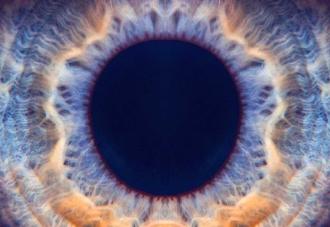The FDA has approved the first artificial intelligence program that can diagnose disease without a human specialist. The AI scans photos of a patient’s retina for signs of diabetic retinopathy—an eye disease caused by high blood sugar—and then delivers a diagnosis, outright, without the need for an eye specialist to interpret the results. You might call it… A-Eye Doctor.
Editor’s Note: We apologize for this terrible joke.
The Disease: Diabetic retinopathy is a serious complication of diabetes and it can cause blindness if not caught early and treated. High blood sugar causes blood vessels in the back of the eye to leak, causing pressure and damaging the retina. More than 30 million Americans currently live with diabetes, and as many as 24,000 go blind from it each year, making it the leading cause of blindness among prime-age adults.
You (Literally) Can’t See It Coming: There are often no symptoms in early stages of the disease, and the early signs aren’t visible without a special camera. People with diabetic retinopathy can often see perfectly until their vision starts to rapidly deteriorate, when it can be difficult or impossible to reverse. The odds of retinopathy increase dramatically over time—by year 15, 80% of diabetics will have signs—yet only half get an annual eye exam, so the CDC has been looking for cost-effective ways to boost screening.
The Tech: The software, called IDx-DR, uses an algorithm to analyze pictures taken with a retinal camera. If it detects significant signs of eye disease, it will return the diagnosis “more than mild diabetic retinopathy detected: refer to an eye care professional.” Once it’s diagnosed, an eye doctor can explore treatments like steroid injections or laser surgery to stop the progression of the disease. It’s pretty darn accurate, too: a 900-person study found that the AI’s diagnosis was correct almost 90% of the time.
The Upshot: The real value of the program is that primary care doctors and nurses can use it without any special training, meaning it could significantly increase screening for the 15 million diabetics who don’t have an annual eye exam. It’s not the first time that software has been used to help diagnose disease, but it’s the first time that software has been approved to make a clinical diagnosis on its own. It’s a radical leap forward, and hopefully we’ll see the democratizing of a lot more specialist know-how across the medical profession through AI like this.
